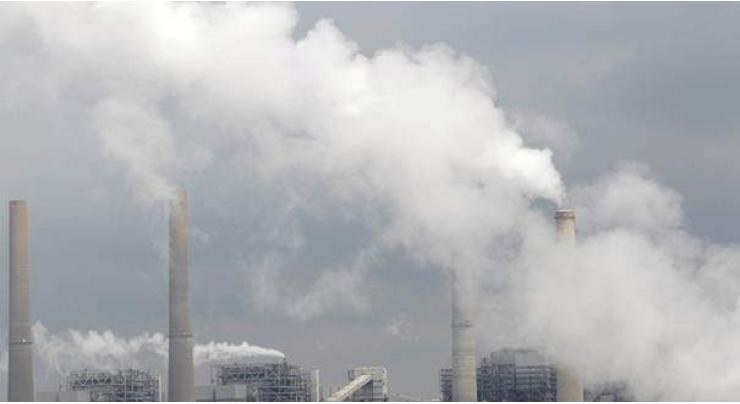
- Home
- World
- News
- Lack of Support for UN Climate Report Adds Strain on Zimbabwe's Resources -Deputy Minister
Lack Of Support For UN Climate Report Adds Strain On Zimbabwe's Resources -Deputy Minister
Mohammad Ali (@ChaudhryMAli88) Published December 13, 2018 | 06:48 PM

The refusal of some countries to "welcome" the Intergovernmental Panel on Climate Change (IPCC) report adds strain on Zimbabwe's resources, Vangelis Peter Haritatos, Zimbabwe's deputy minister of lands, agriculture, water, climate and rural resettlement, told Sputnik on the sidelines of COP24 on Wednesday.
The report in question, released in October, warned that the world had to take urgent action to keep the global warming to 1.5 degrees Celsius (2.7 degrees Fahrenheit), stressing that it would help decrease risks of droughts, floods and other extreme weather conditions.
"Our position is that we do welcome the report ... I think if I remember clearly ... 60 percent of climatic changes comes from developed countries. For a country that contributes to less than one percent of all of that, we are bearing the brunt of a lot of this and it is very unfortunate because we have other challenges that we are trying to target and fight and now this adds additional strain on our already strained resources," Haritatos said.
Haritatos added that countries which decided to distance themselves from the report do not bring justice to the COP24 conference.
The issue came up during the ongoing Climate Change Conference, held in Poland's Katowice, as Kuwait, Russia, Saudi Arabia, and the United States insisted that the IPCC report should be noted rather than "welcomed." According to the US State Department, Washington did not want to endorse the report, although it was prepared to "express appreciation to the scientists who developed it."
The report also outlined how limiting global warming to 1.5 degrees Celsius would result in a reduction in the net decrease of food availability and crop yields. Furthermore, if the 1.5-degree Celsius target is exceeded, the adverse effects on the food sector of global warming could exacerbate existing hazards to the global population, as well as create new ones.
The ongoing conference in Poland's Katowice, which began on December 2, aims to finalize the guidelines for the implementation of the Paris Agreement.
Related Topics
Recent Stories

IHC adjourns PTI founder, Qureshi's appeal till Thursday

CDWP recommends 3 projects to ECNEC for approval

Tarar assures APNS to resolve issues of newspaper industry

Pakistan urged to capitalize on economic stability, for Tobacco Tax Reforms

N. Macedonia polls set to upend ties with EU neighbours

Croatia's ruling party reaches coalition deal with right wing

Bayern coach Tuchel makes three changes for Madrid showdown

Olympic flame arrives on French soil for Paris Games

Punjab Finance Minister announces expansion of Social Protection Authority's man ..

Kenya inks deal to end doctors' strike

Brazil flooding death toll reaches 100

Lebanon security source says five killed in Israeli strikes on south
More Stories From World
-
Football: South African Premiership results
4 hours ago -
Football: South African Premiership table
4 hours ago -
Fiorentina reach Europa Conference League final
5 hours ago -
Fiorentina reach Europa Conference League final
5 hours ago -
Football: Europa Conference League results
6 hours ago -
Tennis: Rome Open results - 1st update
6 hours ago
-
Tennis: Rome Open results
6 hours ago -
Track cycling star Benjamin Thomas escapes to win Giro 5th stage
6 hours ago -
Osaka wins in Rome after three-year absence
6 hours ago -

N. Macedonia polls set to upend ties with EU neighbours
6 hours ago -

Croatia's ruling party reaches coalition deal with right wing
6 hours ago -

Kenya inks deal to end doctors' strike
6 hours ago


